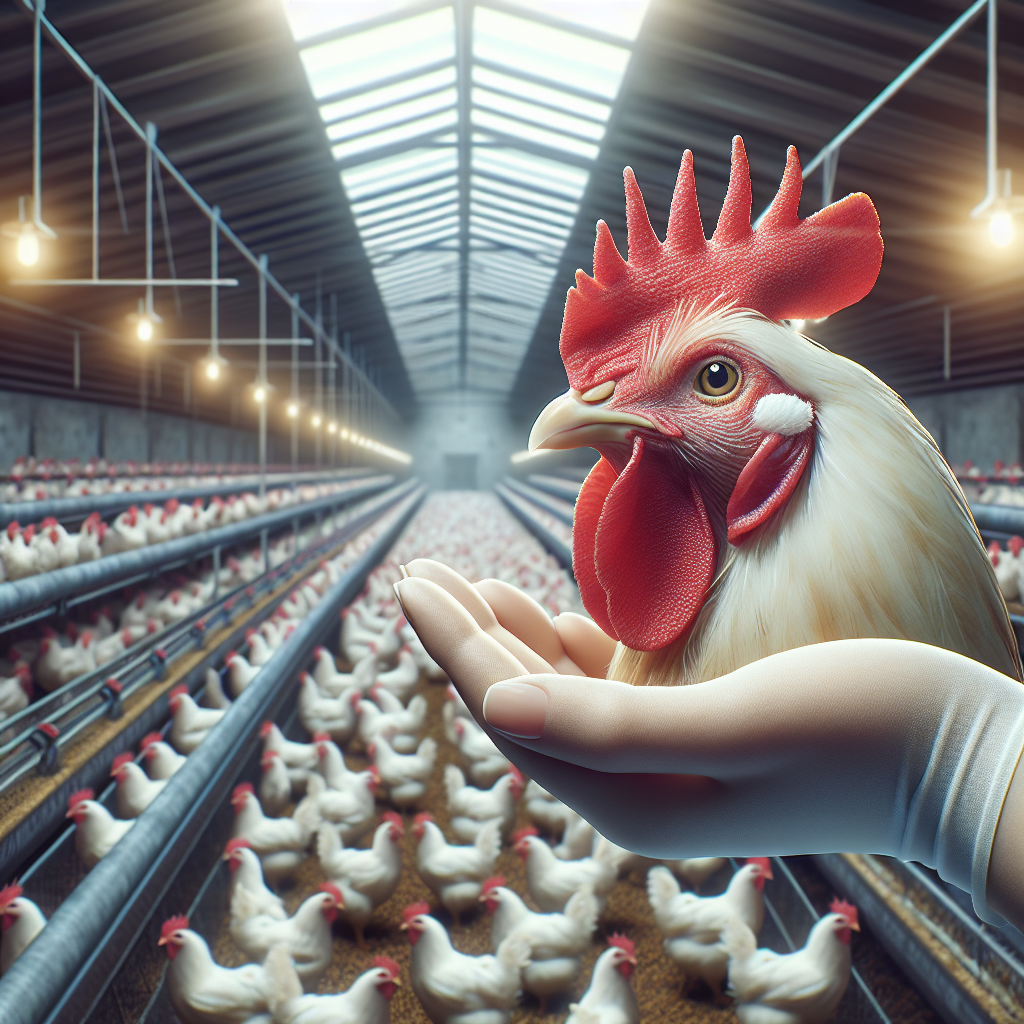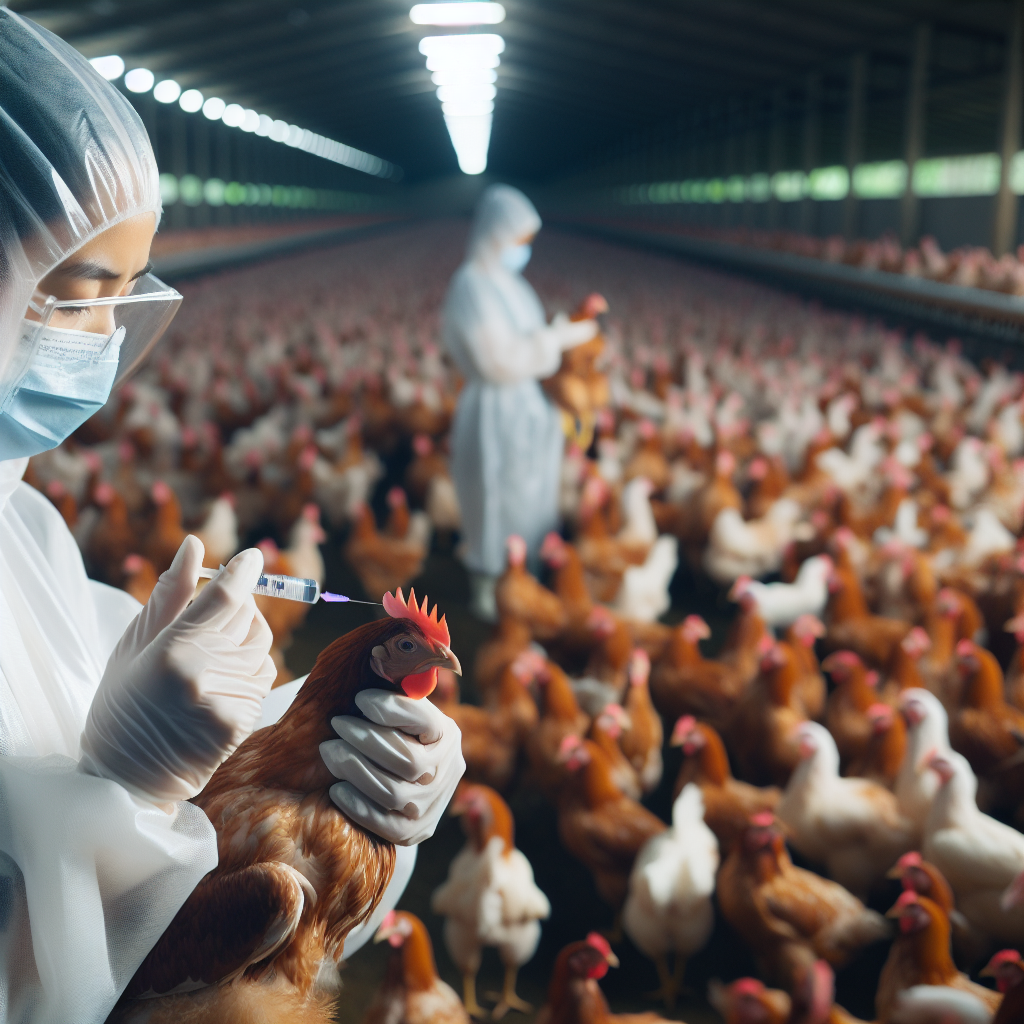If you’re a poultry farmer looking to stay informed and up-to-date on the latest regional regulations and best practices, you may be wondering if there are any local courses or workshops available to help you expand your knowledge. Whether you’re a beginner or an experienced farmer, having access to these educational opportunities can greatly benefit your poultry farming operation. In this article, we will explore the availability of local courses and workshops that focus specifically on regional regulations and best practices in poultry farming, helping you navigate the vast world of poultry farming with confidence.
Local Courses on Regional Regulations and Best Practices in Poultry Farming
1.1 Types of Courses Available
When it comes to poultry farming, having a solid understanding of regional regulations and best practices is essential for success. Fortunately, there are various types of local courses available that cater specifically to poultry farmers. These courses cover a wide range of topics, from biosecurity measures to feeding and nutrition, and are designed to provide farmers with the knowledge and skills they need to navigate the industry effectively.
1.2 Importance of Local Courses and Workshops
Local courses and workshops play a crucial role in supporting poultry farmers by equipping them with the necessary knowledge and skills. These courses provide a platform for farmers to learn from industry experts and gain insights into the best practices and regulations specific to their region. By attending these courses, farmers can enhance their understanding of poultry farming and improve their overall efficiency and productivity.
1.3 Benefits of Attending Local Courses
Attending local courses on regional regulations and best practices in poultry farming offers a multitude of benefits for farmers. Firstly, these courses provide a unique opportunity for farmers to stay updated on the latest regulations and industry trends that may impact their operations. Additionally, farmers can learn from experienced speakers and facilitators, gaining valuable insights and practical knowledge. Networking with other farmers and experts in the industry is also a major advantage of attending local courses as it allows for valuable knowledge-sharing and the establishment of professional relationships.
Workshops on Regional Regulations and Best Practices in Poultry Farming
2.1 Workshop Topics and Objectives
Workshops on regional regulations and best practices in poultry farming aim to cover a wide range of topics relevant to the industry. These topics can include local and regional regulations, disease prevention and control, biosecurity measures, feeding and nutrition, housing and infrastructure, as well as recordkeeping and documentation. The objectives of these workshops are to educate participants on the importance of compliance with regulations, improve their understanding of best practices, and enable them to implement effective strategies in their own poultry operations.
2.2 Expert Speakers and Facilitators
To ensure the quality and effectiveness of these workshops, industry experts and experienced professionals are often invited as guest speakers and facilitators. These experts bring a wealth of knowledge and expertise to the workshops, providing participants with real-world insights and practical advice. They not only share their expertise but also facilitate interactive discussions and engage participants in hands-on activities to enhance their learning experience.
2.3 Interactive Activities and Practical Demonstrations
Workshops on regional regulations and best practices in poultry farming are designed to be interactive and hands-on. Participants can expect to engage in various activities such as group discussions, case studies, and practical demonstrations. These activities allow participants to apply the knowledge they have gained in a real-world context, fostering a deeper understanding and ensuring practical implementation of the concepts discussed during the workshop.
Finding and Choosing Local Courses or Workshops
3.1 Local Agricultural Organizations and Institutions
One of the best ways to find local courses or workshops on regional regulations and best practices in poultry farming is to connect with local agricultural organizations and institutions. These organizations often collaborate with industry experts to offer training opportunities for farmers. They can provide information on upcoming courses and workshops, as well as guidance on the most suitable options based on individual needs and interests.
3.2 Online Course Marketplaces
In recent years, the availability of online course marketplaces has made it even easier to find and choose local courses or workshops on poultry farming. These platforms allow farmers to browse through a wide range of courses, read reviews from past participants, and make informed decisions based on their specific requirements. Online course marketplaces provide a convenient way to access training opportunities and expand knowledge on regional regulations and best practices.
3.3 Recommendations from Fellow Farmers
Another valuable resource for finding and choosing local courses or workshops is the advice and recommendations from fellow farmers. Engaging with other farmers in the industry, either in-person or through online forums and social media groups, can provide valuable insights into the courses and workshops they have attended. Peer recommendations can offer firsthand experiences and help farmers make informed decisions when selecting the most appropriate training opportunities.
Key Elements Covered in Local Courses or Workshops
4.1 Local and Regional Regulations
A fundamental aspect of local courses and workshops is the coverage of local and regional regulations that poultry farmers must adhere to. Understanding these regulations is essential to ensure compliance and avoid any legal issues. Topics covered may include licensing requirements, zoning regulations, waste management guidelines, and animal welfare standards.
4.2 Best Practices in Poultry Management
Local courses and workshops also focus on sharing the best practices in poultry management that have proven to be effective in a specific region. This includes topics such as flock management, disease prevention, vaccination protocols, and proper handling and disposal of poultry waste. By implementing these best practices, farmers can enhance the health and productivity of their flocks while minimizing risks and optimizing overall efficiency.
4.3 Biosecurity Measures
Maintaining biosecurity is crucial in poultry farming to prevent the introduction and spread of diseases. Local courses and workshops provide farmers with a comprehensive understanding of biosecurity measures, including biosecurity planning, proper disinfection protocols, and quarantine procedures. By implementing strict biosecurity practices, farmers can minimize the risk of disease outbreaks and protect their flocks.
4.4 Disease Prevention and Control
Disease prevention and control are vital aspects of successful poultry farming. Local courses and workshops offer insights into the identification, prevention, and control of common poultry diseases. Participants learn about vaccination schedules, early disease detection techniques, and effective treatment protocols. This knowledge empowers farmers to safeguard the health and well-being of their flocks, reducing the impact of diseases on their operations.
4.5 Feeding and Nutrition
Proper feeding and nutrition are essential for the growth and development of poultry flocks. Local courses and workshops provide farmers with knowledge on balanced diets, nutritional requirements, and feeding strategies tailored to the specific needs of the region. By understanding the importance of proper nutrition, farmers can optimize the growth and productivity of their flocks, resulting in higher quality poultry products.
4.6 Housing and Infrastructure
The design and management of poultry housing and infrastructure play a significant role in flock health and welfare. Local courses and workshops cover topics such as housing ventilation, lighting, temperature control, and space requirements. By learning to create optimal housing conditions, farmers can create a comfortable and safe environment for their flocks, reducing stress and improving overall productivity.
4.7 Recordkeeping and Documentation
Effective recordkeeping and documentation are essential for poultry farmers to track and monitor their operations. Local courses and workshops provide guidance on recordkeeping systems, including flock performance records, vaccination records, and feed usage records. By maintaining proper documentation, farmers can analyze data, identify areas for improvement, and make informed management decisions.
Registration and Participation
5.1 Registration Process
The registration process for local courses or workshops on poultry farming varies depending on the organizing body. Typically, farmers can register online through the organization’s website or by contacting the registration office directly. Registration forms may require basic personal information, such as name, contact details, and farm details. It is important to register early to secure a spot as the number of participants may be limited.
5.2 Course Fees and Financial Assistance
Local courses or workshops may have associated fees to cover the costs of venue rental, materials, and expert speakers. The fees can vary depending on the duration and content of the course. However, financial assistance options may be available, particularly for farmers with limited resources. Some agricultural organizations or government programs offer scholarships or subsidies to support farmers in accessing these training opportunities.
5.3 Workshop Duration and Schedule
The duration and schedule of local courses or workshops can vary, ranging from a single day to several weeks. Some workshops may be held during weekends or evenings to accommodate participants who have other responsibilities on the farm. It is essential to carefully review the workshop schedule and duration to ensure that it aligns with personal availability and commitments.
5.4 Participant Requirements and Prerequisites
Local courses or workshops may have specific participant requirements or prerequisites. These requirements could include being an active poultry farmer, having a certain level of experience in the industry, or possessing basic knowledge of poultry farming practices. It is important to review the prerequisites and ensure eligibility before registering to make the most of the learning experience.
Networking Opportunities
6.1 Engaging with Local Farmers and Experts
One of the significant advantages of attending local courses or workshops is the opportunity to engage with fellow poultry farmers and industry experts. These training sessions bring together like-minded individuals who share a common passion for poultry farming. Networking with local farmers allows for the exchange of knowledge, experiences, and ideas, fostering a sense of community within the industry.
6.2 Building Professional Relationships
Attending local courses or workshops also offers the opportunity to build professional relationships within the poultry farming community. Connecting with other farmers, industry experts, and trainers can lead to collaborations, partnerships, and mentorship opportunities. These relationships can prove invaluable, as they provide ongoing support, advice, and guidance throughout a farmer’s career.
6.3 Sharing Knowledge and Experiences
Participating in local courses or workshops allows farmers to share their own knowledge and experiences with others in the industry. By actively engaging in discussions and group activities, participants can contribute to the collective learning process. Sharing personal experiences and insights not only benefits other attendees but also enhances one’s own understanding and critical thinking.
Industry Updates and News
7.1 Staying Abreast of the Latest Regulations
Poultry farming is a dynamic industry, with regulations and requirements subject to change. Local courses or workshops provide a valuable channel for farmers to stay informed about the latest regulations and industry updates. Expert speakers and facilitators often share the most recent changes in regulations, ensuring that participants remain compliant with the law and operate in a responsible manner.
7.2 Emerging Trends and Innovations
The poultry farming industry is constantly evolving, with new trends and innovations emerging regularly. Attending local courses or workshops allows farmers to stay ahead of industry innovations, such as new technologies, improved farming practices, and sustainable production methods. This knowledge enables farmers to adapt, embrace innovation, and remain competitive in the marketplace.
7.3 Access to Research and Case Studies
Local courses or workshops often provide access to the latest research findings and case studies relevant to poultry farming. Participants can gain insights into successful farming practices, explore scientific advancements, and understand the results of various trial studies. Exposure to research and case studies enhances a farmer’s ability to make evidence-based decisions and implement proven strategies in their own operations.
Continuing Education and Certification
8.1 Advanced Courses for Further Specialization
Local courses or workshops on regional regulations and best practices in poultry farming often serve as a foundation for further specialization. After completing basic training, farmers may choose to pursue advanced courses that delve deeper into specific areas of interest, such as poultry health management, organic poultry farming, or hatchery management. These advanced courses allow farmers to build their expertise and develop specialized knowledge.
8.2 Obtaining Certificates and Credentials
Completion of local courses or workshops often results in being awarded certificates or credentials. These certifications can serve as proof of the knowledge and skills acquired during the training. Certificates provide recognition for the effort and commitment put into learning and can enhance an individual’s professional profile within the industry.
8.3 Continuing Education Credits
Continuing education credits may be applicable for local courses or workshops attended by farmers. These credits may be required for maintaining professional certification or membership in agricultural organizations. By participating in these courses, farmers can accumulate the necessary continuing education credits to ensure ongoing professional development and demonstrate their commitment to staying up-to-date with industry practices.
Testimonials from Past Participants
9.1 Success Stories and Benefits of Local Training
Many past participants of local courses or workshops on regional regulations and best practices in poultry farming have shared success stories and the benefits they derived from the training. Farmers have reported increased productivity, better disease management, improved profitability, and enhanced sustainability in their operations. These testimonials demonstrate the real-world impact that local training can have on farmers’ businesses.
9.2 Feedback and Recommendations
Feedback and recommendations from past participants play a vital role in shaping the quality and effectiveness of local courses or workshops. The organizers often collect feedback to evaluate the training’s impact and make necessary improvements. Farmers’ recommendations based on their experience can help guide other farmers in choosing the most suitable training opportunities and ensure continued growth and improvement in the offerings.
Conclusion
10.1 Importance of Local Courses and Workshops
Local courses and workshops focusing on regional regulations and best practices in poultry farming are of great importance to farmers. These training opportunities provide farmers with knowledge and skills to operate successfully within their specific region. By staying informed of local regulations, implementing best practices, and continuously updating their industry knowledge, poultry farmers can navigate the challenges of the industry effectively and achieve sustainable and profitable outcomes.
10.2 Empowering Poultry Farmers with Knowledge and Skills
Attending local courses or workshops empowers poultry farmers by equipping them with the necessary knowledge and skills to succeed in the industry. Through these training opportunities, farmers gain insights into regional regulations, learn best practices, and stay abreast of the latest innovations. The knowledge gained enables farmers to make informed decisions, implement effective strategies, and continuously improve their poultry operations, ultimately leading to long-term success and a thriving poultry farming community.




